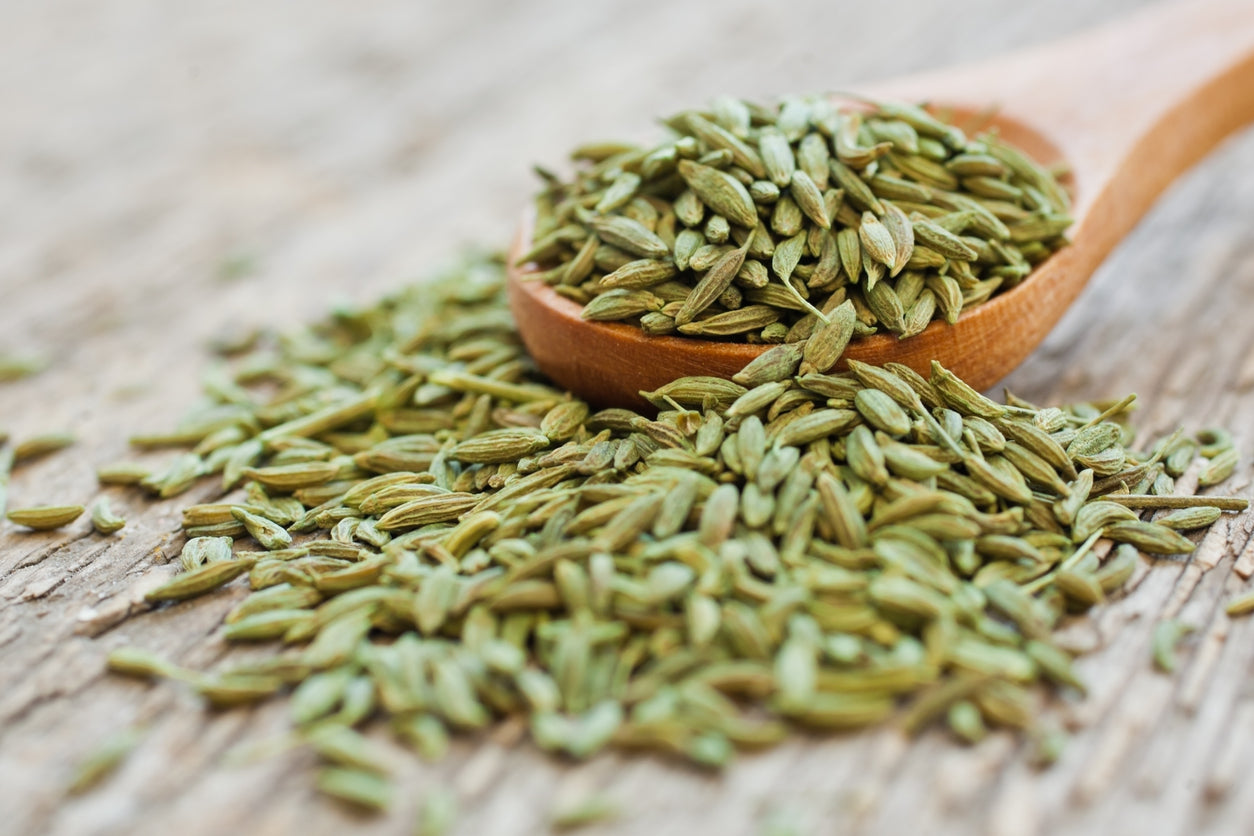Trendy flavoring offers AMAZING digestive and emotional benefits

There’s no doubt about it: the flavor of anise is “having a moment.” Long prized by chefs in Middle Eastern, Italian, German, and Indian cuisines for its pleasing, licorice-like flavor, anise plays a starring role in treats like Italian biscotti and pellets. You may also see anise extracts appearing in popular contemporary cocktails, such as the Caprese cocktail or Blushed Arak.
But anise is so much more than a mere flavoring agent. It is also a powerful medicinal herb that has been used for over 4,000 years in herbal and Ayurvedic healing systems. Lately, scientists have discovered that anise has exciting potential to fight a range of serious conditions and may even function as an herbal antidepressant!
Valuable study: Anise extracts may help alleviate “the blues”
If you struggle with depression, you’re certainly not alone. The National Institutes of Health estimates that 6.7 percent of American adults, or 16.2 million individuals, have had at least one major depressive episode in the preceding year. Mild or moderate depression - in which people experience sadness, irritability, and loss of interest in everyday activities - is fairly widespread as well.
Encouragingly, anise oil shows the potential to brighten mood in milder forms of depression. After early animal studies revealed that anise extracts were as effective as a commonly prescribed antidepressant in relieving symptoms, researchers turned their attention to anise’s effect on humans – and what they learned was encouraging.
In a clinical trial involving people with mild and moderate depression, one group of patients was given 200 mg of anise oil three times a day, while the other group received placebo only. Using the Beck Depression Inventory scale, the researchers found that the anise group had significant improvement in their depressive symptoms: the study - which was published in the Journal of Evidence-Based Complementary and Alternative Medicine - involved patients with irritable bowel syndrome, a condition that often goes hand-in-hand with depression.
Anise’s supportive effects on psychological health seem to be coupled with improvements in digestive health – a true “two-for-one” benefit.
Ward off gastric ulcers naturally with anise
For centuries, anise has been a trusted herbal remedy for digestive upsets. Now, new research has helped to confirm this use – while revealing that anise extracts combat the development of gastric ulcers as well.
In a 12-week clinical study involving 107 people, researchers found that 9 grams a day of anise powder in divided doses effectively reduced after-meal indigestion and heartburn (medically known as post-prandial dyspepsia) compared to placebo. Specifically, powdered anise seeds reduced upper abdominal pain, burning, and uncomfortable bloating and belching.
In other words, anise seeds could be a godsend if you have over-indulged at the table!
Researchers credited anethole, anise’s active constituent, with pain-relieving, anti-spasmodic, and carminative (gas-reducing) properties. They also pointed out that anise seeds can inhibit the activity of H. pylori, the bacteria often responsible for gastric ulcers.
The team concluded that anise was effective and well-tolerated in relieving after-meal dyspepsia. By the way, the beneficial effects of anise persisted for two months - long after the study was over!
Anise belongs to a family of “super-veggies” with impressive health benefits
Anise, botanically known as Pimpinella anisum, has an illustrious family tree. A member of the Apiaceae family, anise is a close cousin to other health-promoting vegetables like carrots, fennel, and parsley.
Despite the similar taste, anise is not related to licorice root (Glycyrrhiza glabra). The distinctive flavor of anise arises from its content of anethole - a potent antioxidant that helps neutralize the trouble-making free radicals that could otherwise cause oxidative stress and lead to heart disease and cancer. Anethole in anise also helps to quench chronic inflammation - a primary factor in developing heart disease, cancer, and type 2 diabetes.
Anise seeds are available whole or powdered, with amounts found in foods generally considered safe to eat. Anise is also available as extracts and oils. However, these are more potent than the seeds, so consult with your integrative doctor for guidance on the right amount to consume.
To start using anise, incorporate the seeds into recipes for baked goods or other desserts. You can also use anise seeds in stews and marinades (incidentally, some chefs swear by their ability to enhance and sweeten sausage).
Finally, anise - particularly at home among festive holiday flavors – may be at its very best when used as an ingredient in Christmas cookies. (just in case you like to plan ahead.)
Fortunately, you don’t have to wait that long to start enjoying its multiple health benefits. Enjoy!
Sources for this article include:






